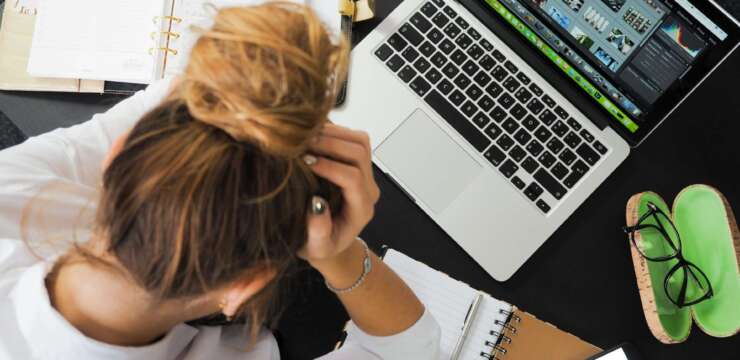What is skin-lightening
Skin lightening, also called skin bleaching, is a cosmetic treatment designed to lighten dark areas of the skin. It helps achieve an overall lighter complexion.The global skin-lightening products market size, valued at USD 9.96 billion in 2021, is expected to compound at an annual growth rate (CAGR) of 5.5% from 2022 to 2030.
Typically, it’s used to enhance the appearance of skin imperfections like birthmarks and dark patches, such as melasma.
These procedures diminish the concentration or production of melanin in the skin. Melanin is the skin pigment responsible for skin colour and protects against the sun’s harmful effects.
Skin lightening is a method used to address pigmentation issues and attain a more even skin tone.
What is skin brightening versus skin lightening?
Skin brightening is about enhancing your skin’s radiance, addressing issues like dullness and uneven tone, and achieving a healthier, more youthful complexion without altering your natural pigmentation. It’s about revitalizing and rejuvenating your skin for a vibrant appearance.
Conversely, skin lightening aims to reduce melanin, the pigment responsible for skin colour, for a lighter complexion. People often seek it for medical conditions like acne-related hyperpigmentation, melasma or sun damage. Lots of cultures also think of lighter skin as more beautiful and leading to better jobs, marriage prospects.
While dermatologists may offer safe treatments for localized hyperpigmentation, they do not support overall skin lightening due to concerns about changing one’s natural skin tone and very serious and dangerous side effects of using chemicals like mercury . However, the desire for lighter skin has fueled a global skin-lightening and beauty industry, raising health issues.
Are Asians more prone to hyperpigmentation?
Hyperpigmentation is a concern for all skin tones. Still, Asian skin is particularly prone to it due to its naturally higher melanin levels and the skin’s abundance of melanocytes (pigment-producing cells).
Adverse effects of skin lightening treatments
Skin lightening for cosmetic purposes poses significant challenges for dermatologists due to its adverse effects on well-being and skin health. Despite existing regulations, lightening products remain prevalent in the cosmetics industry.
In India, especially among young women, the misuse of topical corticosteroids is widespread and associated with notable adverse effects. Unfortunately, there is limited awareness of these effects among the general public. The side effects of the steroid can include thinning the skin and easy bruising acne.
Hydroquinone and Mercury in Skin Lightening Products
The FDA and health officials discovered harmful ingredients like mercury and hydroquinone in skin-lightening products. While the FDA permits them in rare cases, they are often concealed in these products. Over-the-counter skin lighteners with hydroquinone are unapproved and unsafe. Some are applied topically, others injected.
Many of these products omit these ingredients on labels, resulting in mercury poisoning and severe side effects like skin rashes, swelling, and discolouration. Caution is essential for your health.
Some of the best skin treatments for Asians
Laser treatment for skin
In dermatology, various lasers can address ageing concerns, but the best choice for Asian skin depends on individual goals.
Asian skin, like other skin of colour, is prone to post-inflammatory hyperpigmentation (PIH) and hypopigmentation. Therefore, consulting experts for laser treatments, whether for resurfacing, hair removal, or sun spots, is vital.
They can customize treatments to minimize the risk of PIH or hypopigmentation and prioritize your skin’s well-being.
What are the disadvantages of laser therapy?
Elective laser surgeries, such as cosmetic procedures for skin and eyes, come with risks that may outweigh their benefits for some. Preexisting health or skin conditions can be exacerbated, and poor overall health raises the risk of complications. It’s essential to consult with your doctor before opting for laser surgery of any kind.
Skin Tightening Treatments for Asian Skin
Thermage is a good option to tighten sagging jowls and necklines bringing a youthful boost to your skin. It works by harnessing radiofrequency (RF) technology, gently heating the collagen-rich layers of your skin.
This heat kickstarts the production of new collagen while reducing skin laxity, ultimately helping you have firmer and younger-looking skin.
Is IPL good for Asian skin?
IPL-Intense Pulsed Light Therapy- The treatment is most effective for individuals with fair to medium skin tones, typically within Fitzpatrick skin types I to III. This is because melanin, the skin’s pigment, absorbs light energy, making deeper skin tones more prone to burning and, in some cases, scarring.
Dr. Christopher Weyer, a dermatologist in Tucson, Arizona, notes that performing IPL on African-American skin can be challenging due to risks such as hyperpigmentation.
Melasma and Asian skin
Melasma is common in Asian and darker skin tones due to higher melanin levels, making them sun-sensitive. Melanin protects against UV rays, but repeated exposure can lead to issues like sunspots and melasma. To preserve Cosmelan’s benefits, limit sun exposure and use sunscreen daily.
What is Cosmelan used for?
The Cosmelan depigmentation treatment is a medical-grade chemical peel designed to reduce hyperpigmentation and melasma, resulting in a clear, radiant, and even-toned complexion. This is usually done in a specialized skin clinic.
Some Natural skin-lightening ways.
Daily exfoliation and cleansing with AHAs and BHAs
Regular AHAs –Alpha-Hydroxic Acid and BHAs-Butylated hydroxyanisole can transform your skin, making it smoother and brighter while addressing pigmentation, fine lines, excess oil, and clogged pores. Popular options include glycolic and lactic acid (AHAs) and salicylic acid (BHA), effectively removing dead skin cells, blackheads, whiteheads, dirt, and makeup, leaving your skin refreshed. Remember to start with weaker strength of the acids, and do a small patch test first to check for reactions.
Over-the-counter topical products
Many over-the-counter products can lighten and improve skin texture. Keep an eye out for ingredients like AHAs, BHAs, Vitamin C, and Vitamin E. AHAs and BHAs, in particular, can reduce pigmentation fine lines and clear excess sebum, dirt, and dead skin cells.
Topical retinoids
Retinoids are potent for acne, scars, and wrinkles. Be cautious; they may cause peeling, dryness, burning, and sun sensitivity. Start with a weaker strength and many people benefit from the anti- ageing benefits, but first test a small patch of skin.
Lutein and zeaxanthin supplements for natural skin care
Lutein and zeaxanthin isomers in various foods act as antioxidants, defending your body and skin from UV light’s harmful effects. They’re especially vital for skin cells. These compounds are thought to help protect your skin from high-energy sources like blue light. Including them in your diet could help shield your skin from oxidative damage however these products are of low clinical effectiveness.
The following measures can help with natural skin care.
- Eat a healthy diet of oily fish [ high omega-3], leafy green vegetables and fresh fruit.
- Protect your eyes from the sun
Which kitchen remedy is best for skin whitening?
Popular Kitchen remedies for skin lightening include:
- Homemade face masks with honey
- Aloe vera
- Milk
It’s worth knowing this has limited evidence and could be beneficial for skin health rather than whitening.
If you decide to use lemon on your face, there could be some benefits but due to the highly acidic ingredients it could cause irritation and inflammation. Try a small patch, and when you apply lemon, apply it onto cotton first. Gently tab, and don’t rub into the skin.
How to get lighter skin? Don’t fall for this obsession.
Dr. Roopal Kundu, founder of the Northwestern Medicine Center for Ethnic Skin and Hair, highlighted a surprising finding: users of over-the-counter skin-lightening products are often unaware of their ingredients and potential risks.
These products are easily accessible in various outlets but lack the same regulatory scrutiny as prescription or chain store items.
A U.S. study uncovered a prevalence of skin lightening among people of colour, particularly women. It’s crucial to raise awareness about the associated risks. Additionally, the study revealed that colourism, valuing lighter skin as more advantageous, motivates using such products.
Dr Kundu also noted a common perception that lighter skin is favoured within specific ethnic groups, such as Southeast Asians or Africans. A recent Northwestern Medicine study reported that this perception can drive individuals to use skin-lightening products to improve their appearance or job prospects.
A case study where this obsession went too far
A 29-year-old woman noticed her face was getting darker over the past 6 years. She started using a skin cream containing hydroxyquine recommended by a beautician to make her complexion lighter. After using it for 2 years, her skin did get lighter, so she stopped.
But two months later, her skin darkened again, so she started using the cream again without much improvement. She continued using it, but her skin kept getting darker. She saw different skin doctors and was once told she had lichen planus pigmentosus, but the treatment didn’t help.
She didn’t take any particular medications, had no other health issues, and wasn’t under stress. They even looked at a piece of her skin under a microscope and diagnosed a condition of exogenous ochronosis when the skin reacts to a substance in the cream.
This condition can result in permanent purplish/ blue pigmentation so it’s essential to be aware of the ingredients you put on your skin as this can have long lasting damage.
Conclusion
Embracing our natural skin colour and tone is paramount, as pursuing lighter skin through risky treatments and products can lead to significant harm, as evidenced by medical studies and cases.
Societal pressure to conform to specific beauty standards that favour lighter skin perpetuates this practice. Still, it’s essential to challenge these norms and celebrate the diversity of skin colours and tones.
For more practical Health Tips Please visit my Video Channel:https://www.youtube.com/@TheTravellingDoc
References:
https://www.nhs.uk/conditions/cosmetic-procedures/non-surgical-cosmetic-procedures/skin-lightening/
https://www.grandviewresearch.com/industry-analysis/skin-lightening-products-market#:~:text=The%20global%20skin%20lightening%20products%20market%20size%20was%20estimated%20at,USD%2010.57%20billion%20in%202022.
https://www.hindawi.com/journals/jeph/2015/591790/
https://www.vogue.in/beauty/content/difference-between-brightening-and-lightening-skincare-products
https://www.michelegreenmd.com/asian-skin-treatments
https://www.ncbi.nlm.nih.gov/pmc/articles/PMC8072511/
https://www.ncbi.nlm.nih.gov/pmc/articles/PMC4228636/
https://www.fda.gov/consumers/health-fraud-scams/skin-products-containing-mercury-andor-hydroquinone
https://www.healthline.com/health/laser-therapy#uses
https://www.realself.com/nonsurgical/ipl
https://www.medicinenet.com/how_can_i_lighten_my_skin_naturally/article.htm
https://www.dovepress.com/overall-skin-tone-and-skin-lightening-improving-effects-with-oral-supp-peer-reviewed-fulltext-article-CCID
https://news.northwestern.edu/stories/2023/07/skin-lightening-products-can-be-dangerous-but-users-dont-know-risks/
http://edoj.org.eg/vol010/0101/007/paper.pdf
Disclaimer: The Content on this channel is for educational purposes and not intended to be a substitute for professional medical advice, diagnosis, or treatment. Always get advice from your doctor if you are worried or have symptoms.



1 Comment